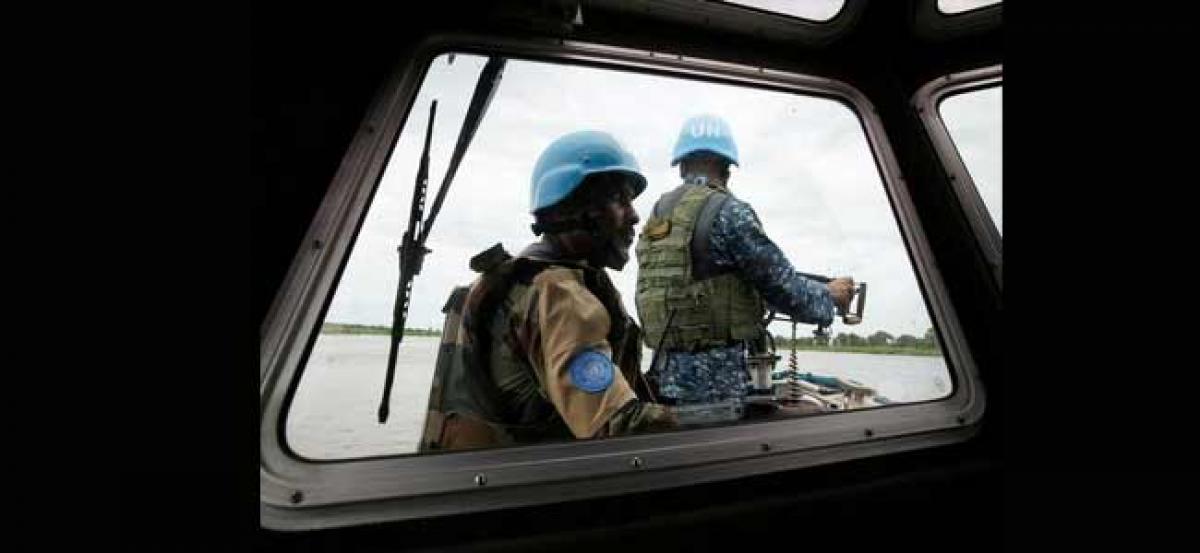Make guns fall silent: UN envoy to South Sudan warlords

Warring parties in South Sudan must demonstrate their willingness to a peaceful end to their conflict by making their guns fall silent, immediately and everywhere,
New York : Warring parties in South Sudan must demonstrate their willingness to a peaceful end to their conflict by "making their guns fall silent, immediately and everywhere",
The United Nations Secretary-General Special Envoy for Sudan and South Sudan, Nicholas Haysom, has called on South Sudan's warlords to silence their guns and end their hostilities for peace to reign.
Haysom told the UN Security Council that warring parties in South Sudan must demonstrate their willingness to a peaceful end to their conflict by "making their guns fall silent, immediately and everywhere".
His comments were delivered during a briefing to the Security Council on South Sudan, led by Jean-Pierre Lacroix, the Head of UN Peacekeeping Operations.
Haysom said that in 2016, when he took up his post, South Sudan was trying to implement the original version of the peace agreement that has now been revitalised, and formally agreed only last week.
The revitalised peace deal, was signed in the Ethiopian capital, Addis Ababa, between President Salva Kiir and his former Vice-President, Riek Machar.
The two years-long rivals signed a "landmark" agreement on September 12 at the main UN office in Addis Ababa, following 15 months of negotiations led by the Inter-Governmental Authority on Development (IGAD) and the Governments of Sudan and Ethiopia.
Since 2013, the country has suffered devastating civil conflict that has seen tens of thousands killed, multiple human rights abuses and millions displaced or forced to flee across the border.
Haysom said that the important question facing the Security Council is how the international community and UN should respond to the new agreement and that, while the agreement is not perfect, it could still be an effective platform for peace.
He said that he had advised the parties to the South Sudanese conflict that simply signing a peace treaty would not lead to the automatic support of the international community.
He noted that previous agreements had been violated within hours of the relevant parties committing to peace, saying an assessment of the sustainability of the agreement is necessary.
This assessment includes its enforceability, political accountability and trust levels: with trust currently very low between the two parties, confidence building measures are needed to build faith in the peace process, following years of inter-communal violence.
In addition, potential donors would not be willing to fund the peace process unless there is financial transparency, and accountability for the past misuse of public funds, he warned.
In his briefing, Lacroix described the new agreement as "an important milestone in a crisis now entering its fifth year".
The UN Peacekeeping chief said that the need for peace in South Sudan was so urgent that "we must seize this as an opportunity and work together to make the agreement a basis for lasting peace".
Lacroix also stated that trust was crucial, and that this would allow all South Sudanese stakeholders, including women, to meaningfully engage in the full implementation of the agreement.
However, renewed fighting had already been reported within days of the signing in Addis Ababa, in several regions of South Sudan, with both sides in the conflict mobilising reinforcements to support operations to secure territory.
The UN Peacekeeping chief said this fighting has worsened the already dire humanitarian and human rights situation in the country.
Almost two million people are displaced within South Sudan, and another 2.5 million have been forced to live in neighbouring countries, and a key hallmark of the conflict includes sexual violence, threats and harassment.
Lacroix and Haysom both supported the proposal of IGAD to enable Sudan, Uganda, Djibouti and Somali troops to join the Regional Protection Force deployed in South Sudan.
These soldiers would be tasked with, among other things, the protection of the opposition leaders once they return to the country to take part in the transitional government. However, the UN Mission in South Sudan would continue to perform its mandate to contribute to a secure environment, with an emphasis on protecting civilians.

